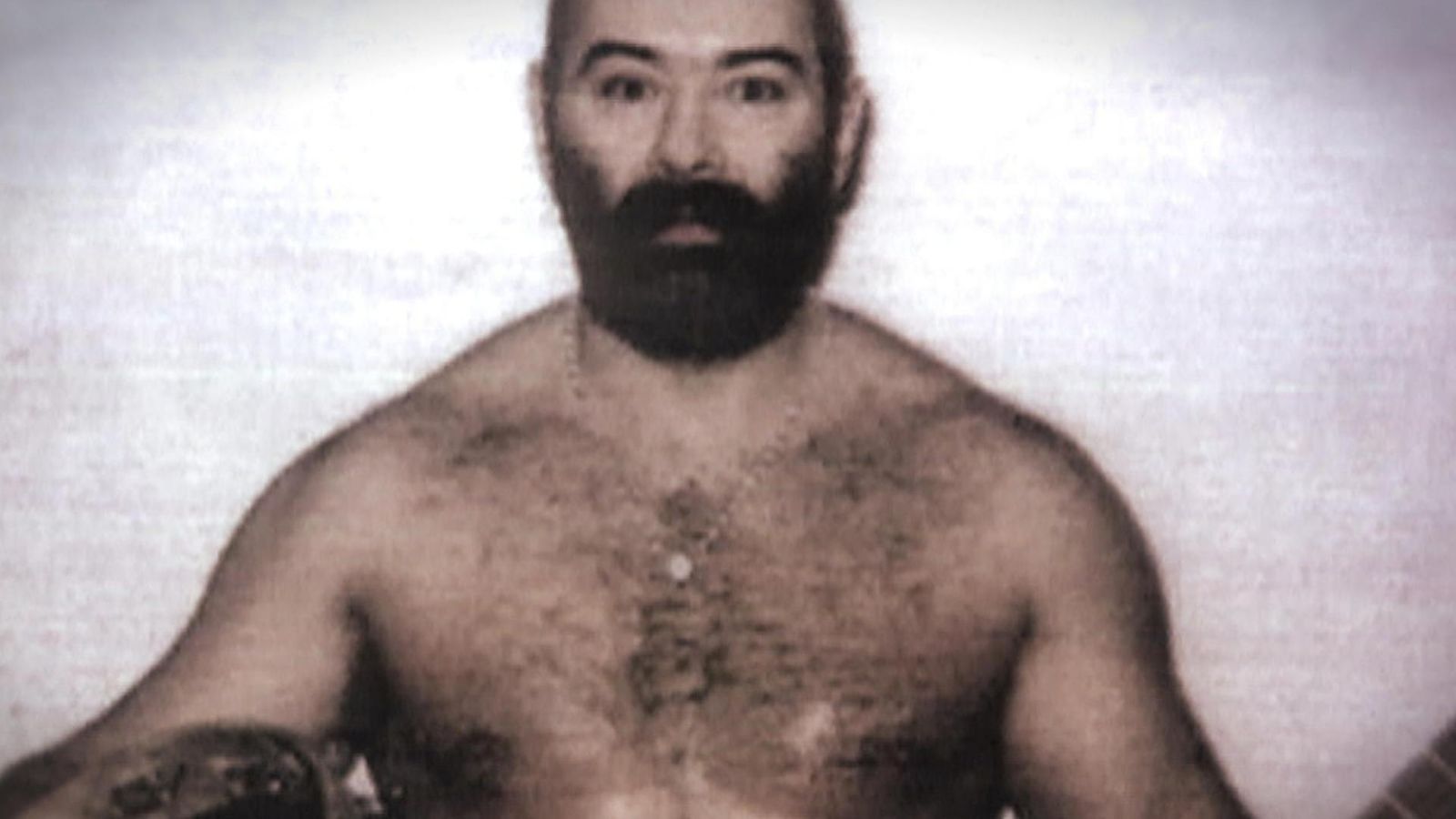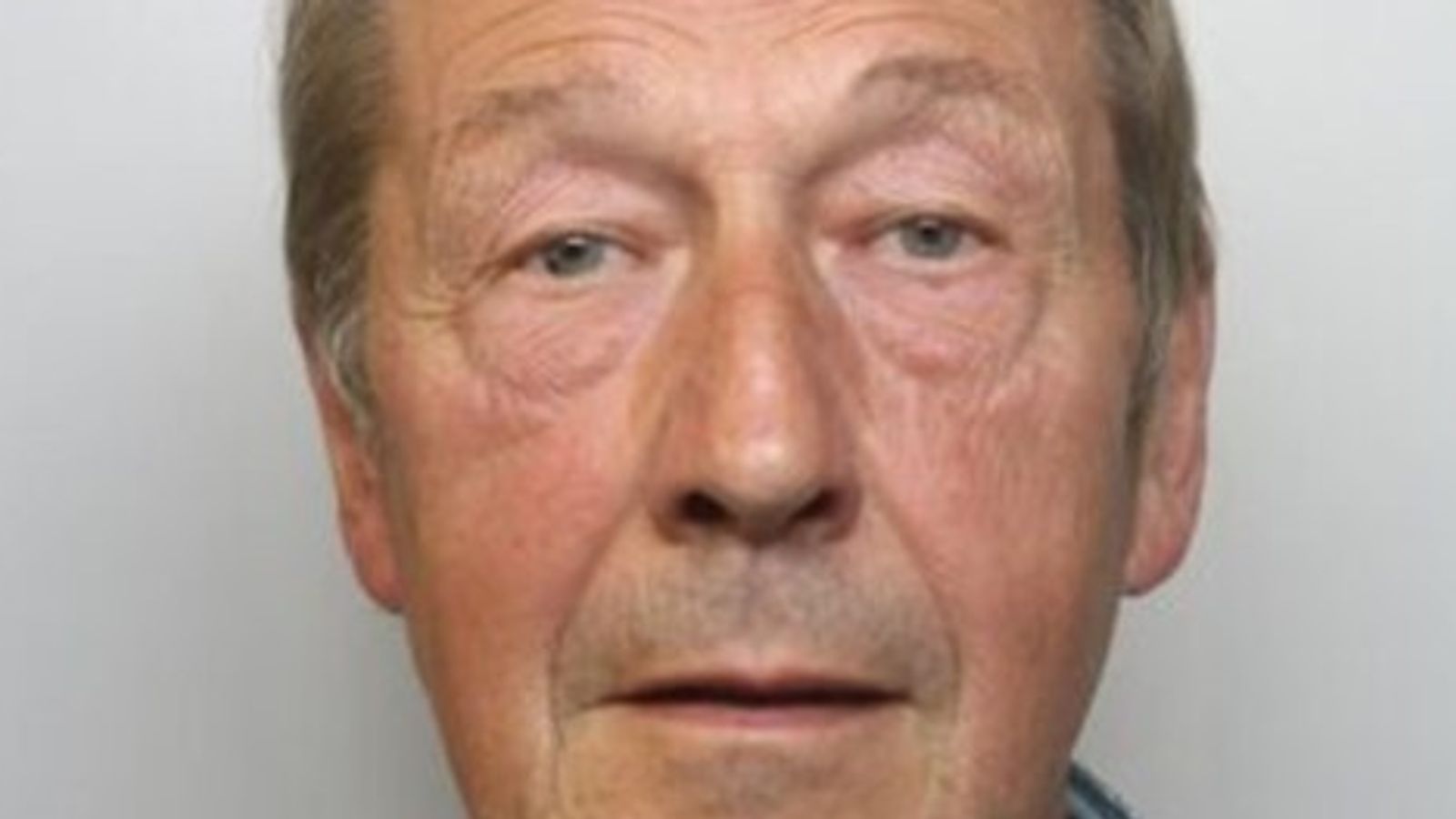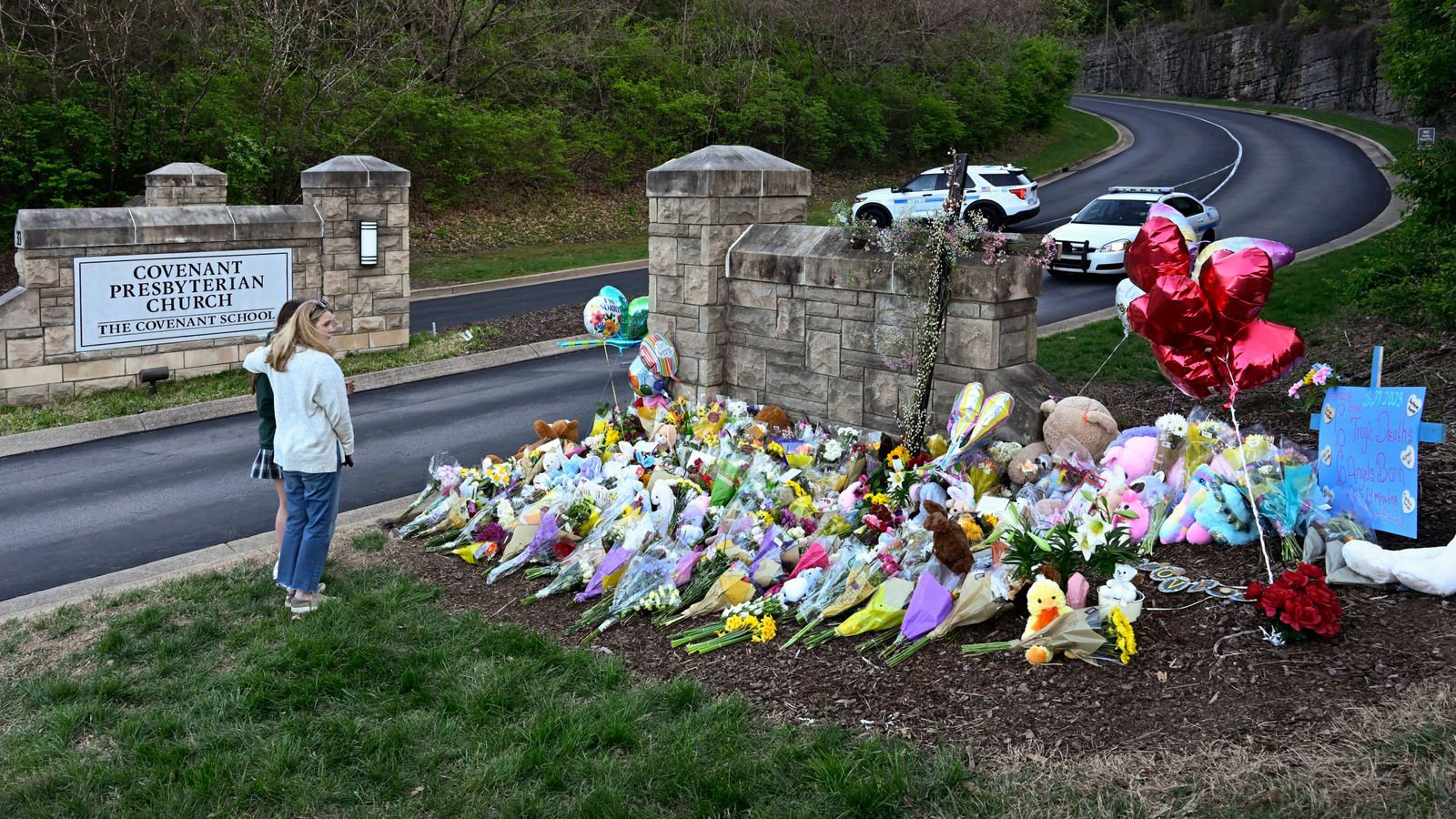Britain’s most notorious inmate Charles Bronson has claimed he now “hates violence” and has been a “model prisoner” for the last decade.
In a voice note sent to Sky News, Bronson said he has “never been a danger to the public” and that “I love the world”.
Bronson, 70, was jailed for armed robbery in 1974 and, but for a couple of brief episodes of freedom, has been in jail ever since.
His original seven-year sentence has been extended many times because of his violent attacks on prison staff and fellow inmates.
He will learn tomorrow if he has persuaded the Parole Board to free him – but he is not hopeful.
The panel is expected to reject even his secondary plea – for a move to an open prison – and announce he must stay behind the bars of the special secure unit where he is held.
Bronson hopes that if he fails this eighth bid for parole the board members will at least suggest a gradual reduction in the strict security that surrounds him most of the time and allows him only 90 minutes out of his cell each day.
The board has powers only to order release, a move to an open jail, or stay where he is.
Bronson said in his voice message: “They keep f****** drumming it into the public I’m a danger. Who am I a danger to? I’ve never been a danger to the public. I love people, love ’em, I love the world. I’m not a f****** filthy terrorist or a rapist, or a murderer, so who am I dangerous to outside?”
Charles Bronson has never used a cash machine and would need practical support if released, expert reveals
Charles Bronson: ‘Best hostage’ to ‘naked rumble’ – 15 things Britain’s most notorious prisoner revealed at parole hearing
Charles Bronson: Who is Britain’s most notorious prisoner and why has he been in jail for so long?
He added: “I want to go home, I’m an artist born again. I hate violence, I despise it and that’s all I’ve done for the last ten years, sit in my cell, a model prisoner, polite, respectful but they still won’t let me out.”
During his parole hearing earlier this month a prison psychologist said although Bronson posed a moderate risk of violence inside jail, it would be a high risk if he was freed.
Another psychologist, Kerry Daynes, who was called by Bronson, said she felt he should probably stay where he is and be given a gradual introduction to open conditions.
Bronson, who has changed his name to Charles Salvador, told the public hearing that he is now a man of peace and had not been violent for many years. He realised any repeat of his old behaviour would probably mean spending the rest of his life in jail.
During the hearing, held at Woodhill Prison near Milton Keynes in Buckinghamshire, Bronson handed the three board members examples of his artwork, telling them: “Each piece of art is a piece of me.”
A young rapper named Ice-T-21 is hoping that if Bronson is released they could collaborate in a campaign to help cut youth knife crime.
He said: “I’m hoping to record a song with him, make some poetry, I want him to get on stage with me. He is someone who has been involved in many violent incidents, but has turned his life around. I think it would work because a lot of people would listen to him because of who he is.”











